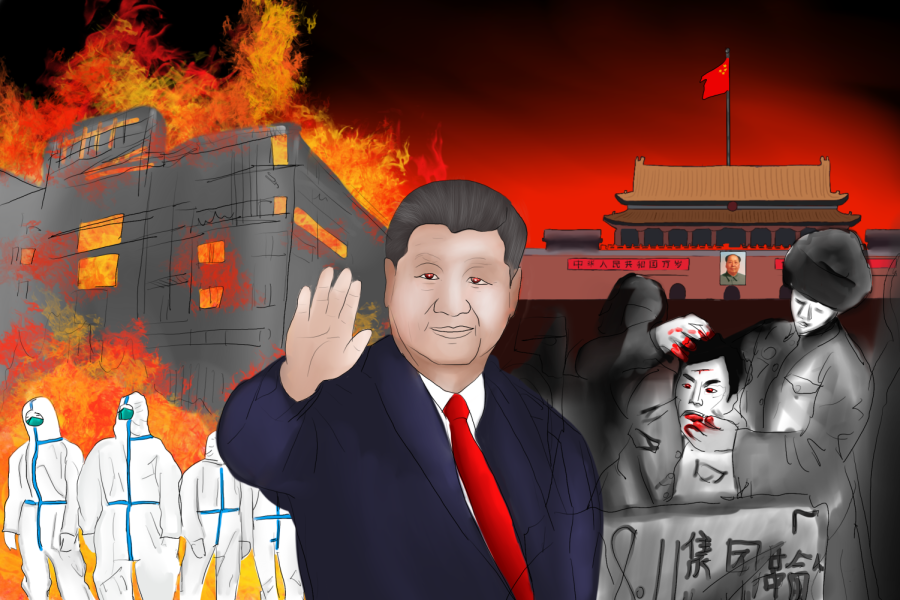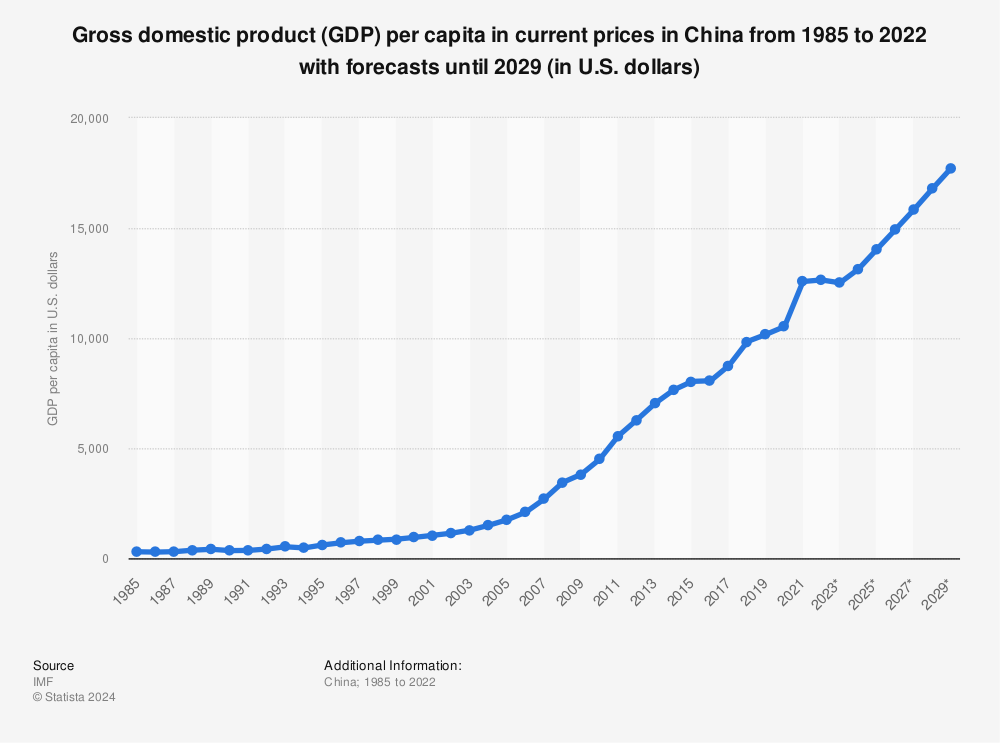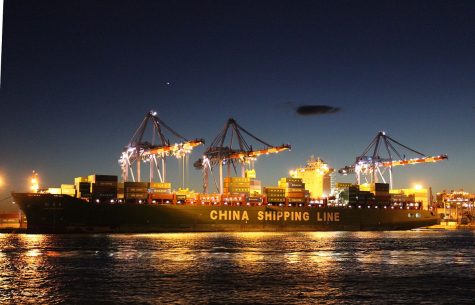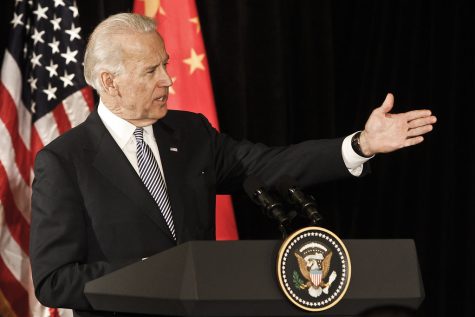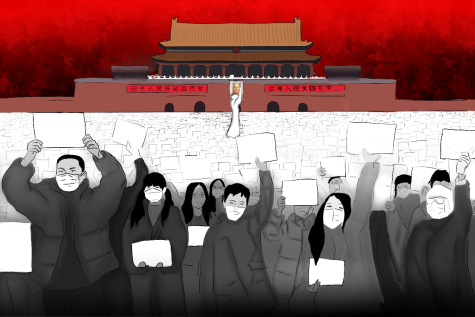“Democracies cannot be sustained in the 21st century. Autocracies will run the world.”
This ominous warning, issued during a phone call with President Joe Biden on the night of the 2020 election, reveals President Xi Jinping’s startling vision for the future.
To the democratic West, Xi cannot be more wrong. If anything, the world appears to have become increasingly Westernized in the past few decades. As some may point out, even traditionally authoritarian countries in Asia, such as Japan and South Korea, have also transitioned to democracy rather successfully.
In the past, many had hopes that China would follow suit, but recent events have proven that China won’t be turning into a democracy anytime soon.
Instead, Xi has full intentions of turning the country in the opposite direction.
The only question is whether Chinese citizens will put up with the Chinese Communist Party (CCP)’s progression toward totalitarianism.
Chances are, they will.
To sufficiently understand China’s plight, it’s essential to be familiar with how the CCP controls China while maintaining public support.
Recognizing that the CCP could not last without a strong economy, Deng Xiaoping enacted the Open Door policy in 1978 to initiate China’s economic rehabilitation after the destruction of the Cultural Revolution. Since then, the country has integrated into the global economy, encouraged youth to study abroad, raised living standards, and developed technology to modernize its cities.
In 2019, China had the world’s second-largest economy and was the largest exporter by value (Pew Research). Much of this growth resulted from, rather than in spite of, China’s “communist” government. It supported technological, agricultural, and industrial development, established areas for foreign investment, and encouraged public projects, all while promoting a socialist market economy concept.
As a result, the CCP proved to its citizens that it could ensure prosperity and peace. Although propaganda and indoctrination played a role, China’s economic success is a testament to the Chinese people that their government is just as effective, if not more so, than any Western capitalist democracy could be.
The rapidly changing policies, lifestyle, and overall status quo in the past century prior to this economic prosperity filled many Chinese people’s lives with uncertainty. For them, security was more valuable than liberty. Rather than a Western democracy where politics are centered around elections, and real change is slow to come by, their government appeared much more reliable.
In a 2022 survey, 89% of Chinese respondents showed trust in their government compared to the global average of 51% (Statista). Despite how it handled COVID-19, Chinese citizens still appear to have high faith that their government is doing the right thing.
However, whether they realize it yet or not, the people of China have given up many rights and personal freedoms in exchange for the past few decades of prosperity. The pandemic has proven that the CCP has the Chinese population under complete control.
Xi’s “zero-COVID” policy, where entire cities were essentially under house arrest for weeks or months and families were forcibly torn apart to prevent the spread, would never have been possible in America.
Although the policy effectively curbed COVID-19 cases, it came at the expense of freedom.

After two years of strict lockdowns, citizens were finally fed up. Nov. 2022 marked a period of “white paper” protests, the largest demonstration in Chinese history since Tiananmen Square in 1989.
Because any form of protest against the government was a crime, protestors in Xinjiang and later everywhere in the country walked the streets with blank pieces of paper, a defiant cry against censorship and the CCP’s authoritarian rule. Yet in comparison, many more people chose to remain silent.
Xi lifted lockdown restrictions without prior announcements or preparation a few days later. As China breathed back to life, COVID-19 cases skyrocketed, and netizens began to blame the protestors.
For the first time in three years, citizens traveled home for the Chinese New Year. Meanwhile, the CCP rounded up protesters while suggesting that demonstrators had been backed by “external forces.”
Though most Chinese people are aware of the censorship and propaganda, perhaps more remain silent in fear of offending the Party and facing the same consequences as these protestors. Or, maybe any dissatisfaction faded after lockdown restrictions were lifted.
Either way, it will likely be erased from public memory a decade from now, just like the Tiananmen Massacre. If patterns of history repeat, they will continue to surrender themselves to CCP authority.
The most alarming aspect of the ordeal is that Xi had the power to impose inhumane lockdowns on millions of people and lift them just as readily without caring for the disastrous aftermath it may cause. He holds unrivaled authority over the CCP and China, and his power may continue to grow.
Since his inauguration in March 2013, Xi has progressively tightened his control over the Chinese Communist Party (CCP). He eradicated opposition from dissidents like Qin Yongmin and within the government by launching the most extensive anti-corruption campaign of China’s modern era, arresting more than 120 high-level party leaders and over 100,000 lower-level government officials.
At the 20th Party Congress in Oct. 2022, he won an unprecedented third term and became China’s most powerful leader since Mao Zedong, the founder of the People’s Republic of China. He is on the trajectory of being chairman for life, and it’s not difficult to imagine his plans for the future.
As China chugs further down the totalitarian train track, it will only be harder to turn back.

